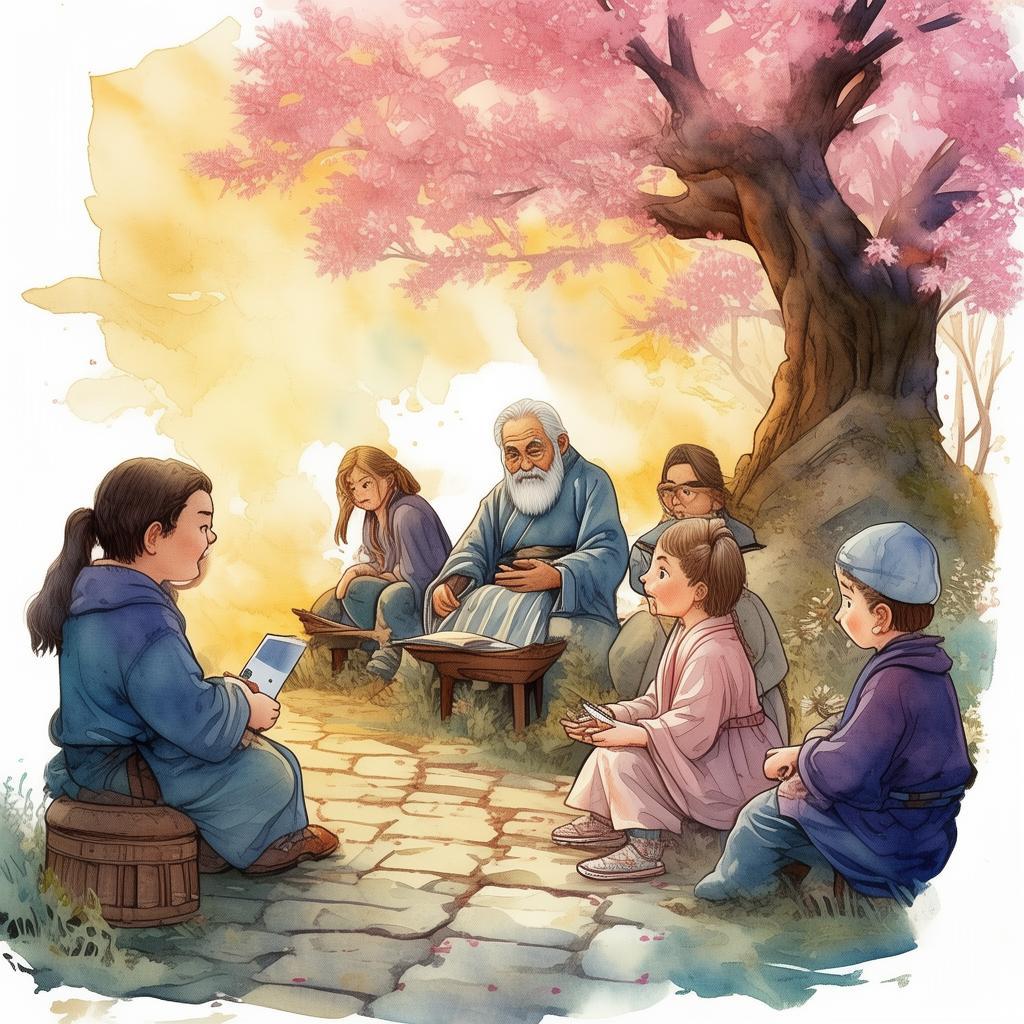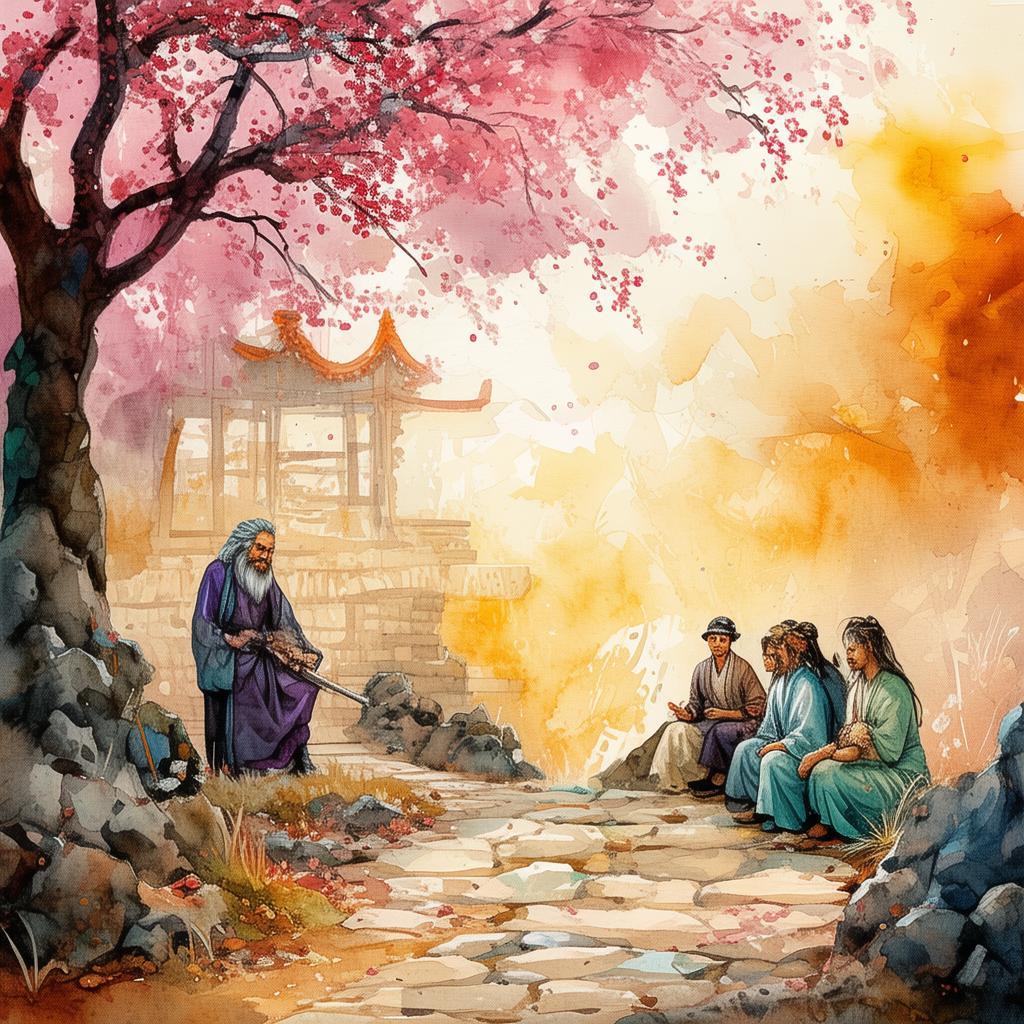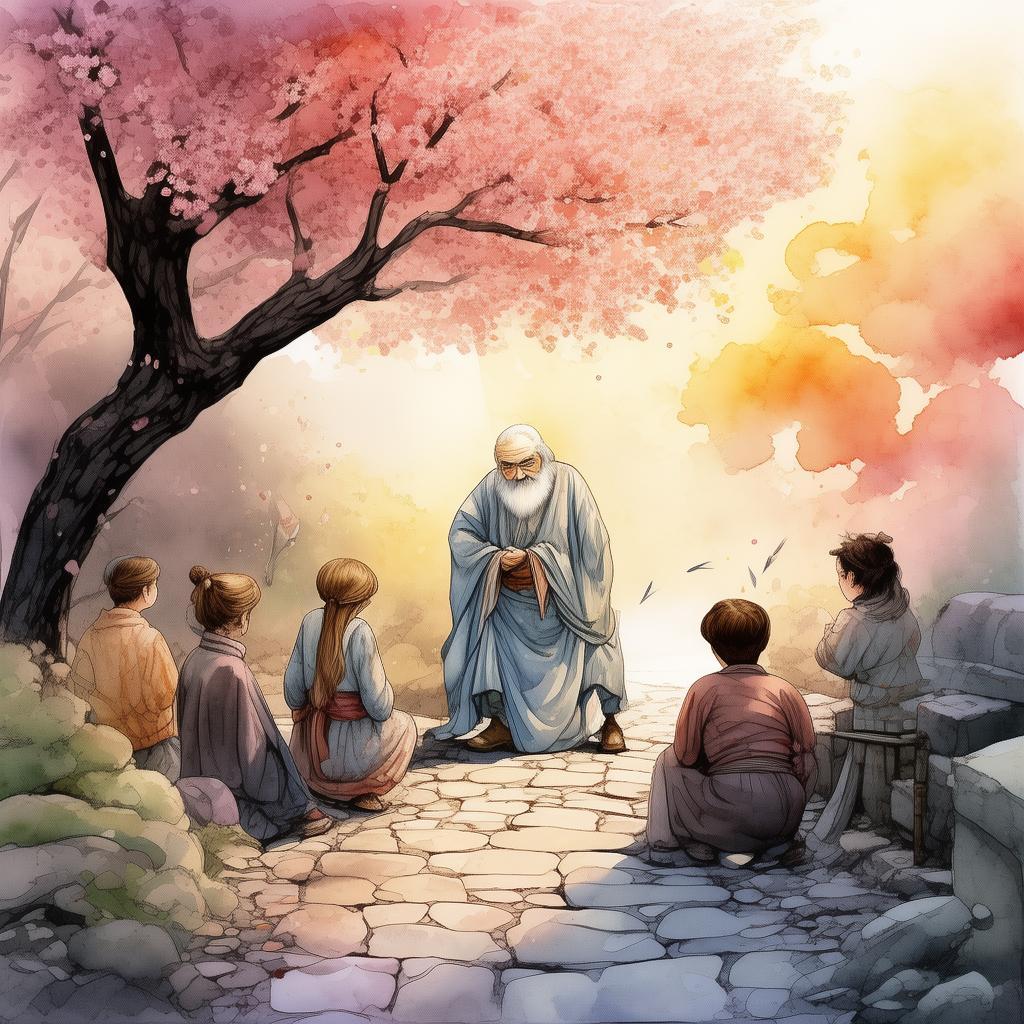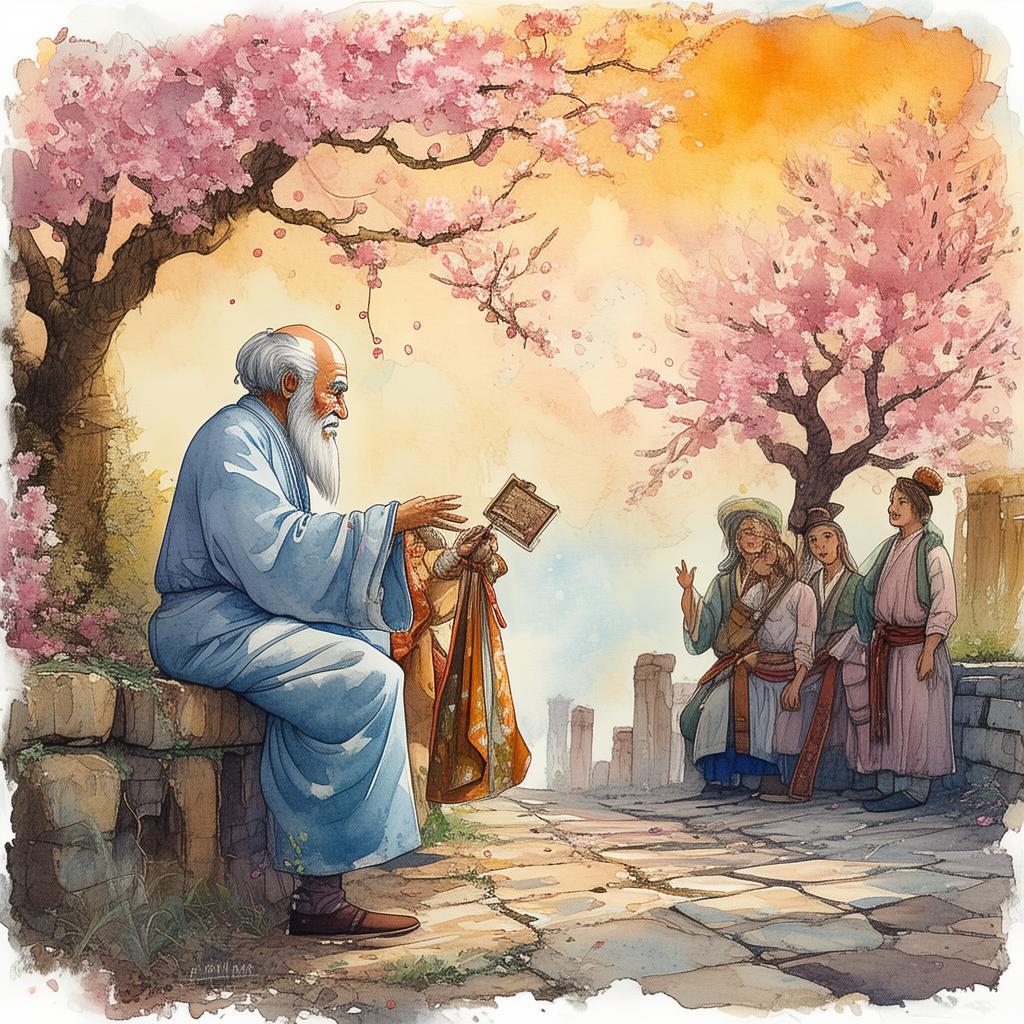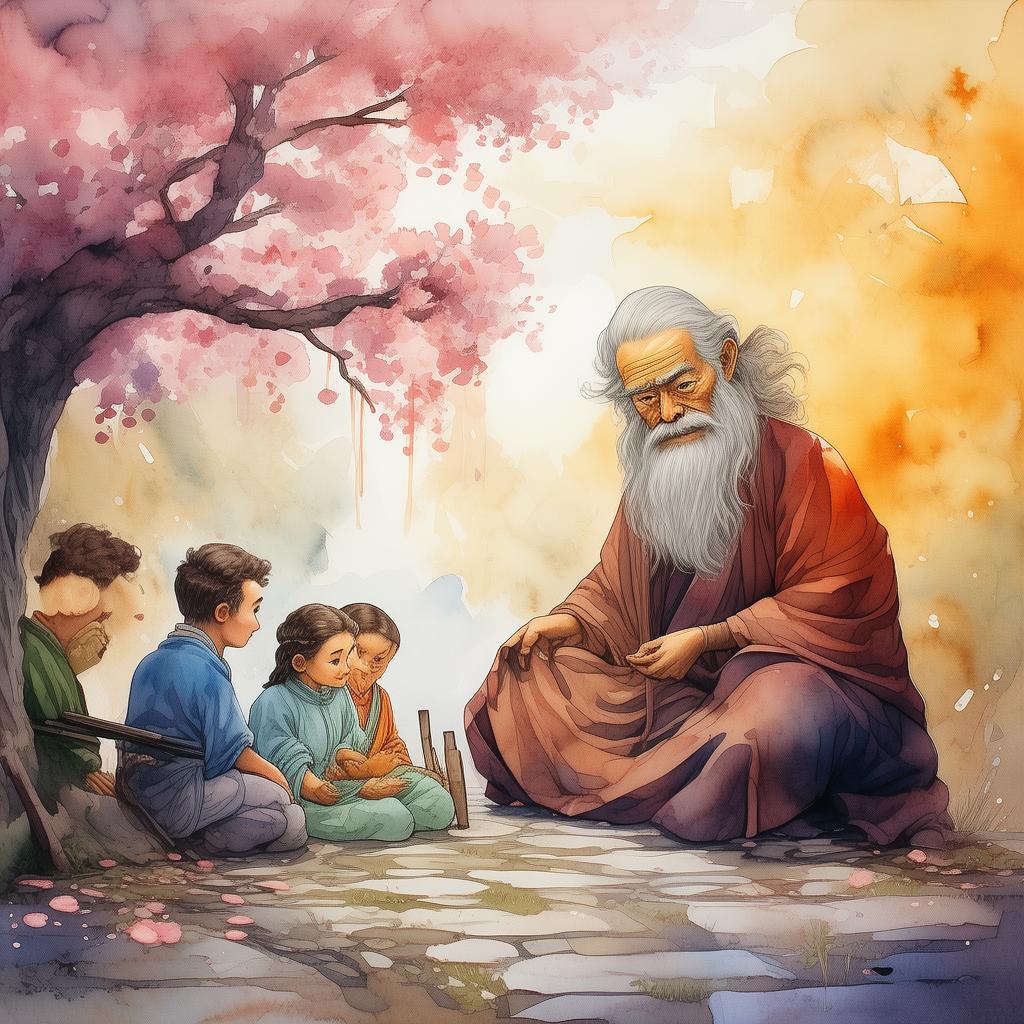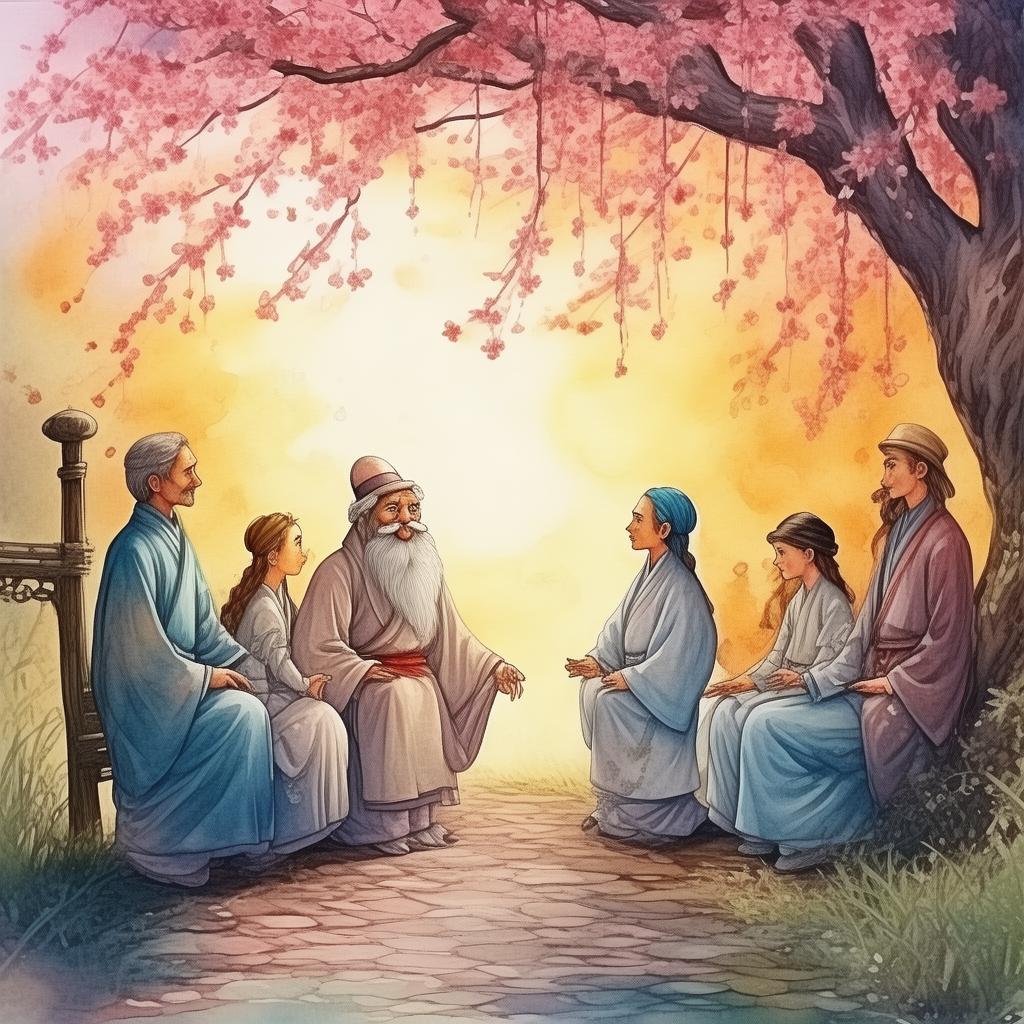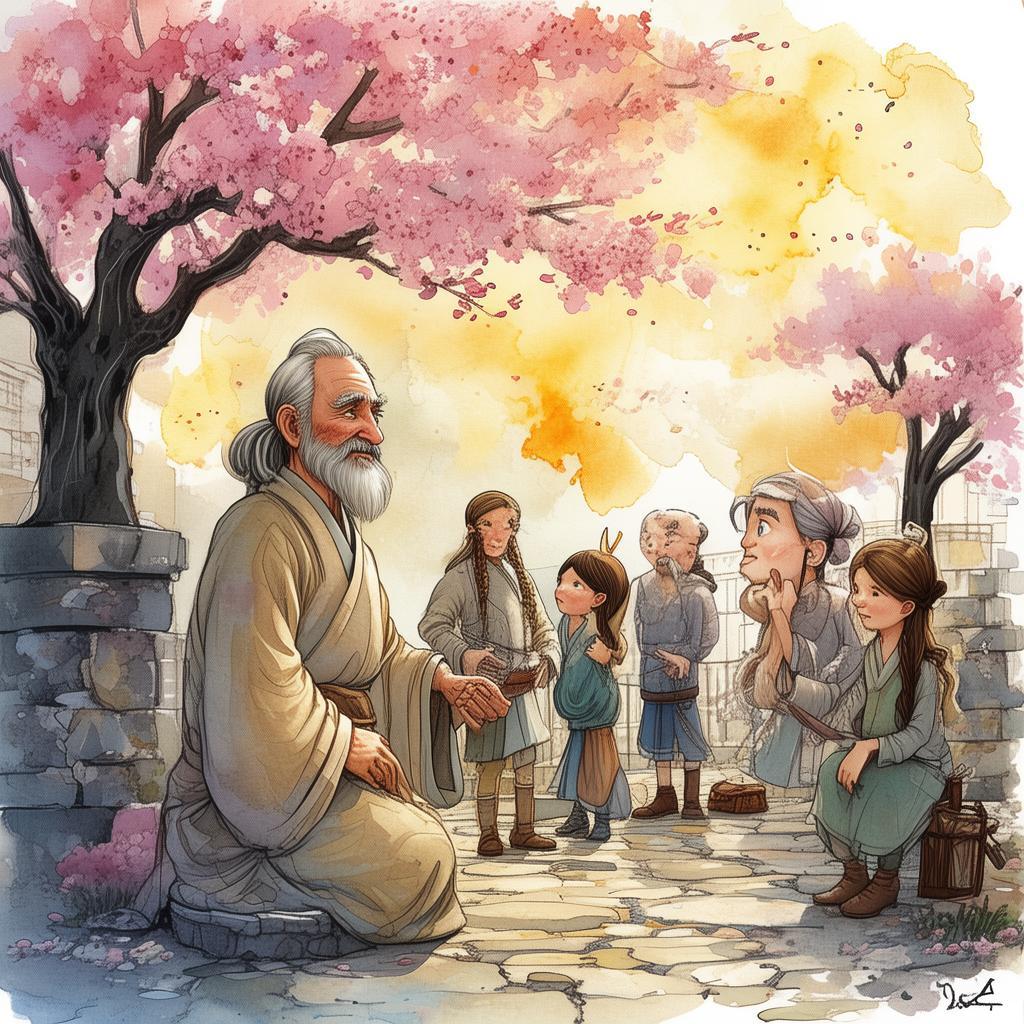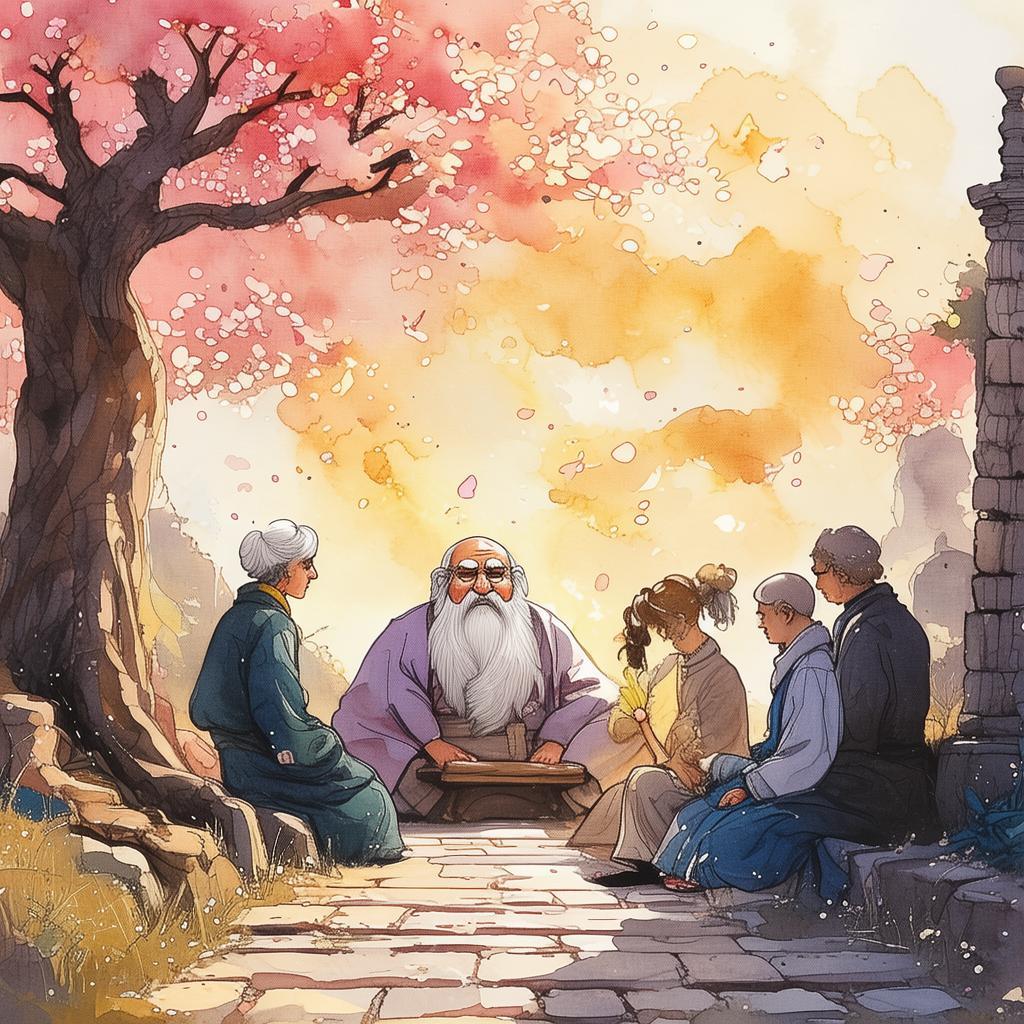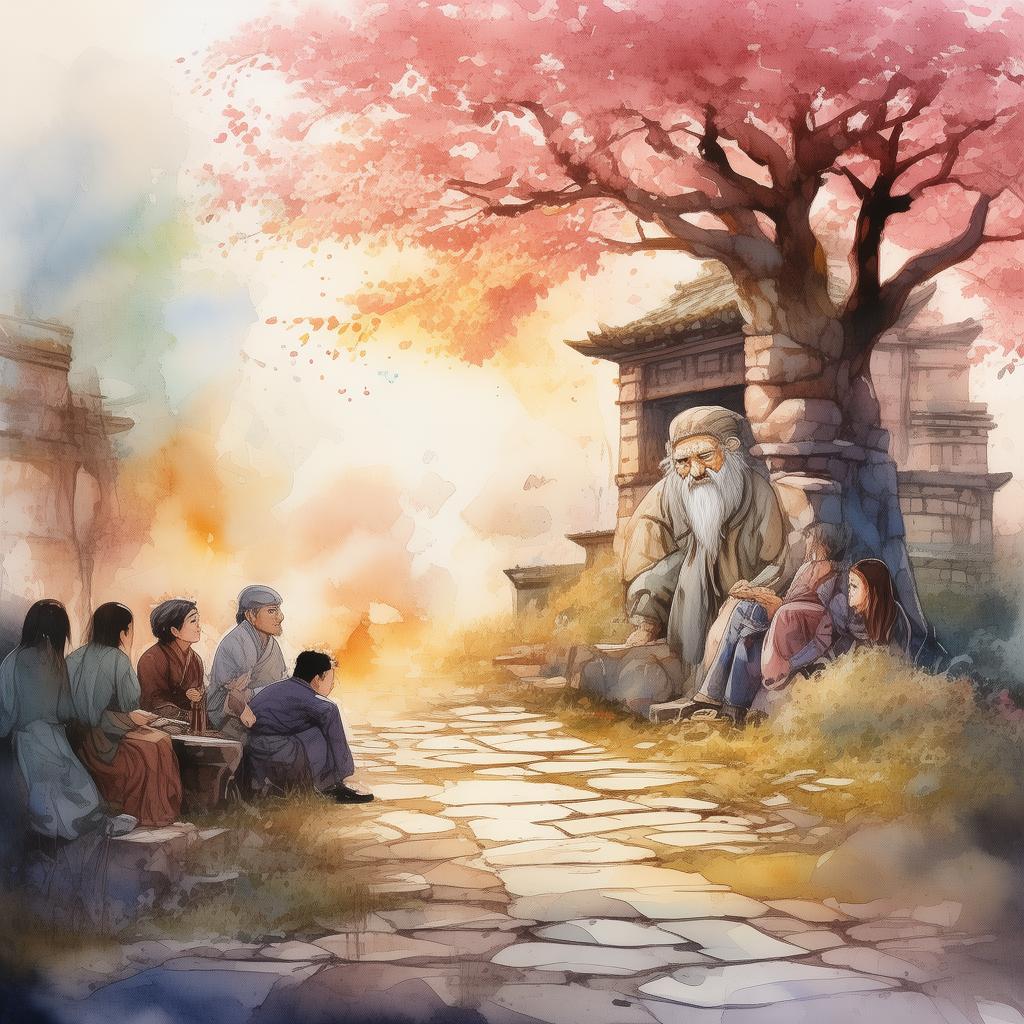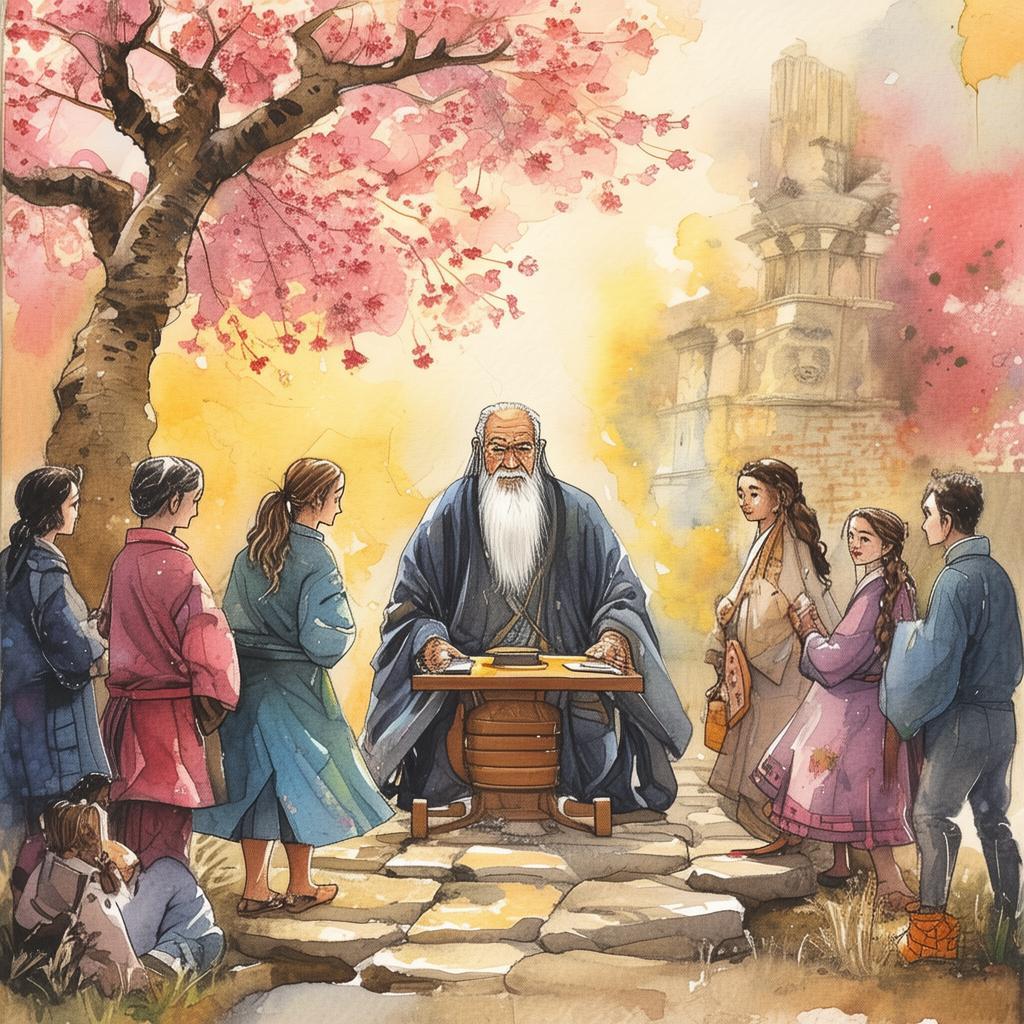Harmony of the Sages: A Symphony of Wisdom and Music
In the ancient land of Lüntian, music was not merely an art form but a language that resonated with the very essence of existence. The Lüntian Symphony, a revered institution, was home to the most brilliant minds and virtuosos who sought to master the symphony of life through the harmonies of music. The Triple Classic, a collection of ancient texts, was believed to hold the key to understanding the universe’s symphony.
Among the sages of Lüntian, there were three who were destined to change the course of history. Master Qin, a virtuoso of the lute, Master Yang, a maestro of the guzheng, and Master Li, a composer of unparalleled talent, each possessed the gift of music that could move mountains and soothe the winds.
Master Qin was known for his melodies that could stir the soul, yet he was burdened by a past filled with conflict. His younger brother, a rival musician, had been accused of a crime he did not commit, and Master Qin was torn between loyalty and justice. Master Yang, on the other hand, was a man of peace who believed in the power of music to heal wounds, but his village was threatened by a warlord who sought to exploit the land and its people. Master Li, the composer, was haunted by the loss of his mentor, who had passed on the secret of The Triple Classic to him. His journey was one of discovery and redemption.
The three sages had been summoned by the Lüntian Symphony to participate in a grand symphony that would celebrate the unity of the land and the wisdom of The Triple Classic. They were to compose a piece that would embody the essence of the ancient texts, a piece that would resonate with the hearts of all who heard it.
As the days passed, Master Qin began to compose a lute piece that would tell the story of his brother’s innocence. His melodies were filled with the sorrow of injustice and the hope for redemption. Master Yang, inspired by the beauty of his village, wrote a guzheng piece that depicted the harmony of nature and the peaceful resolve of the people. Master Li, however, struggled to find the right notes to express the depth of The Triple Classic’s wisdom.
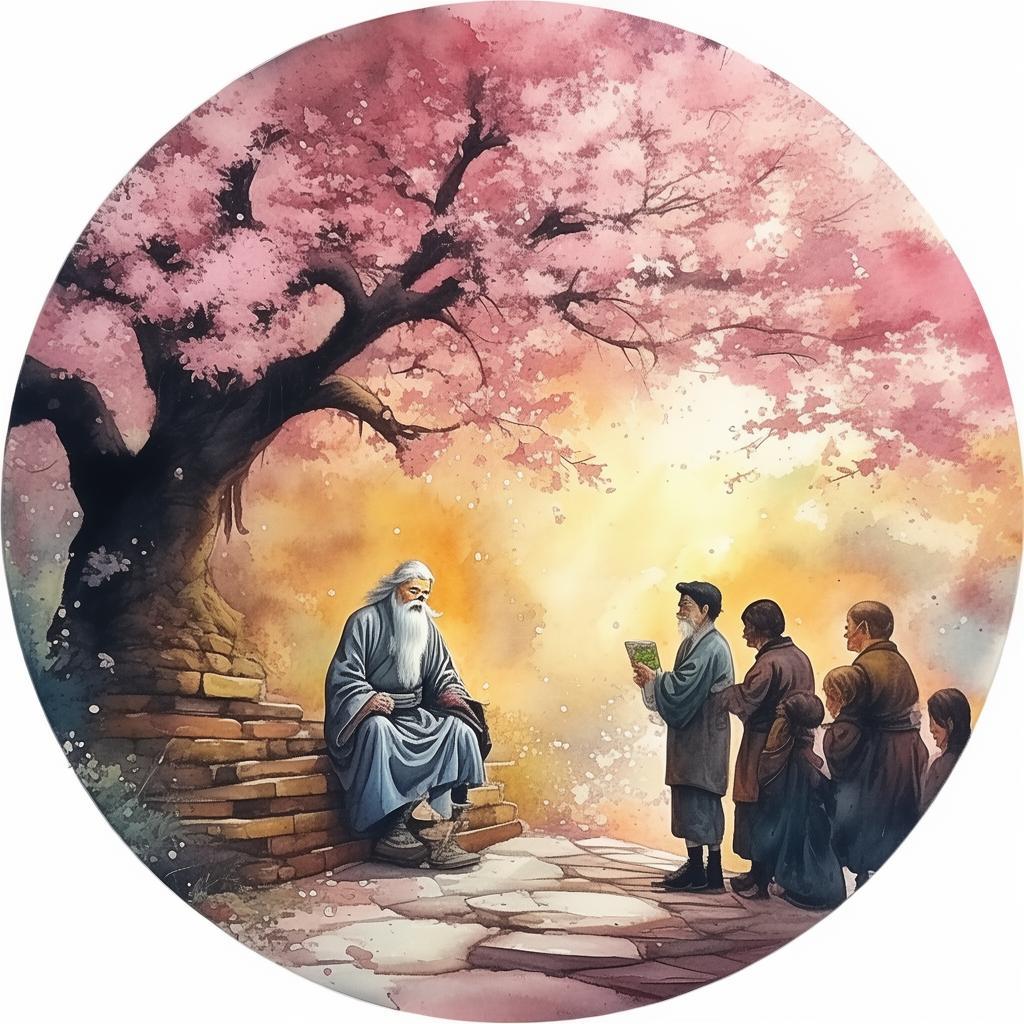
One evening, as the three sages gathered to share their progress, Master Li revealed his frustration. "The Triple Classic is a labyrinth of knowledge, and I fear I have not found the path to its heart," he confessed.
Master Yang, ever the peacemaker, suggested, "Perhaps we should each share our understanding of the texts and see if we can find a common thread."
So, they began to discuss the classics, their voices blending into a harmonious dialogue. Master Qin spoke of the balance between justice and loyalty, Master Yang of the harmony of nature, and Master Li of the interconnectedness of all things. As they spoke, they realized that their individual pieces were but pieces of a larger puzzle.
Master Qin's lute piece, filled with conflict, was to be the opening of the symphony, setting the stage for the journey ahead. Master Yang's guzheng piece, a testament to peace, would follow, offering a respite from the turmoil. Master Li's composition, a celebration of unity and interconnectedness, would be the climax, with each note a reminder of the shared wisdom they had uncovered.
As the day of the grand symphony approached, the sages worked tirelessly, their individual pieces coming together seamlessly. The Lüntian Symphony was filled with anticipation as the audience gathered to witness the grand performance.
The symphony began with Master Qin's lute piece, its melodies both sorrowful and hopeful. The audience was captivated, and as the piece reached its conclusion, a hush fell over the room.
Master Yang's guzheng piece followed, its gentle notes painting a picture of tranquility and harmony. The audience was moved, and as the piece ended, there was a collective sigh of relief.
Finally, Master Li's composition took the stage, a tour de force that brought the audience to their feet. The music was a celebration of life, love, and the interconnectedness of all beings. It was a symphony of wisdom, a testament to the power of understanding and unity.
As the final note resonated through the hall, the audience erupted into applause. The sages, now bound by the shared experience of their journey, realized that they had not only composed a piece of music but had also found a way to heal the divisions that had once plagued their land.
The symphony was a success, not just in the eyes of the audience but in the hearts of the sages themselves. They had learned that true wisdom could be found in the unity of their differences, and that music was the universal language that could bridge the gaps between them.
In the days that followed, the land of Lüntian flourished, and the Lüntian Symphony became a beacon of harmony and wisdom. The story of the three sages and their symphony of wisdom spread far and wide, inspiring generations to come to seek understanding and peace through the harmonies of life.
✨ Original Statement ✨
All articles published on this website (including but not limited to text, images, videos, and other content) are original or authorized for reposting and are protected by relevant laws. Without the explicit written permission of this website, no individual or organization may copy, modify, repost, or use the content for commercial purposes.
If you need to quote or cooperate, please contact this site for authorization. We reserve the right to pursue legal responsibility for any unauthorized use.
Hereby declared.
